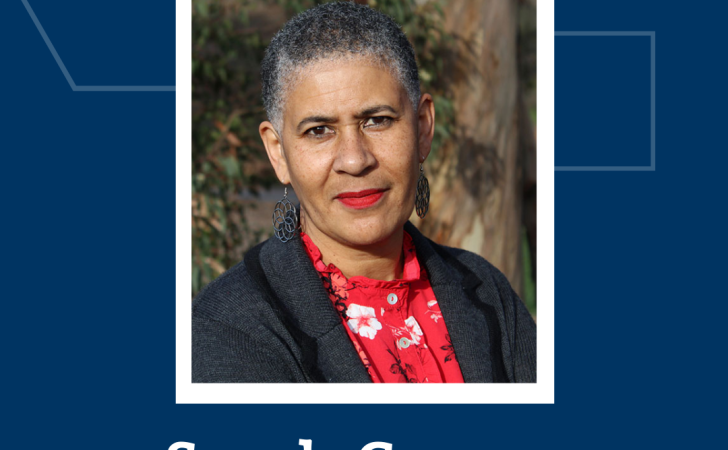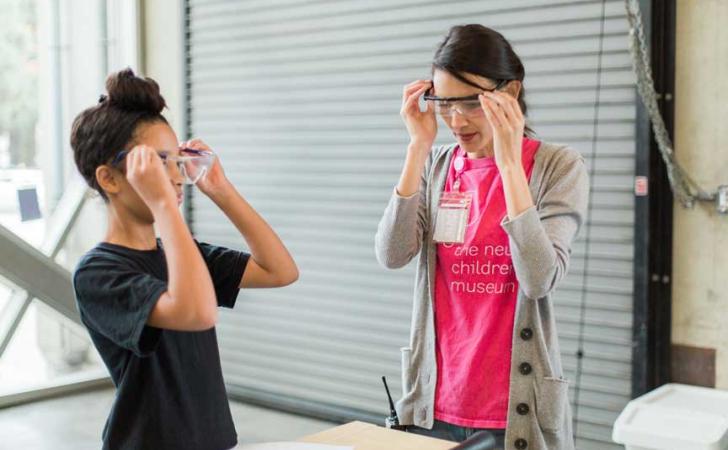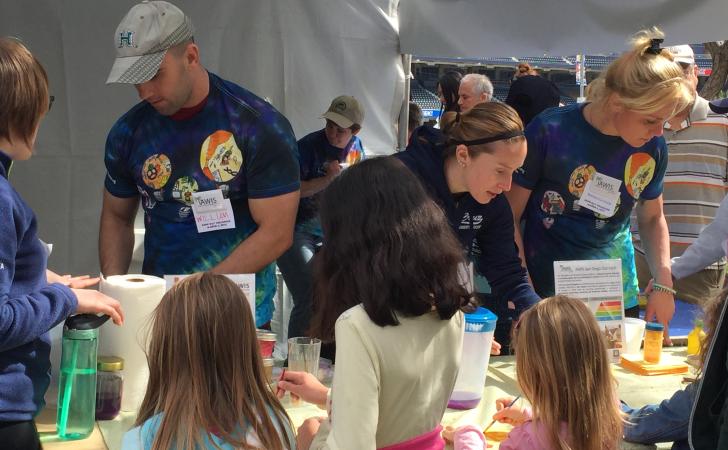Community Science for All
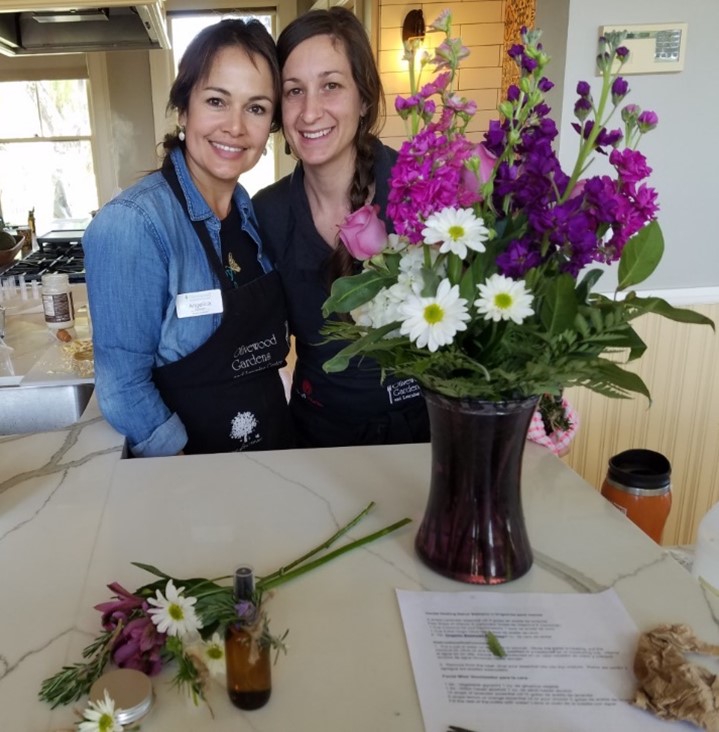
Guest post by Yanet Lopez, Angelica Gastelum, and Ivel Gontan
Yanet Lopez, Community Engagement Manager at the Fleet Science Center, and Angelica Gastelum, Schools Coordinator and Kitchenista™ at Olivewood Gardens and Learning Center, first began working together as part of the National City STEAM Collaborative, a group of community partners working to advance STEAM opportunities in National City, California, located in the South Bay region of San Diego. Their work and personal values are grounded in community; they also share an affinity for supporting participatory projects that connect community to science, created by community members and for advancing their priorities. Eager for opportunities to make more of those authentic connections, it was a natural next step to apply for the Thriving Earth Exchange Community Science Fellowship.
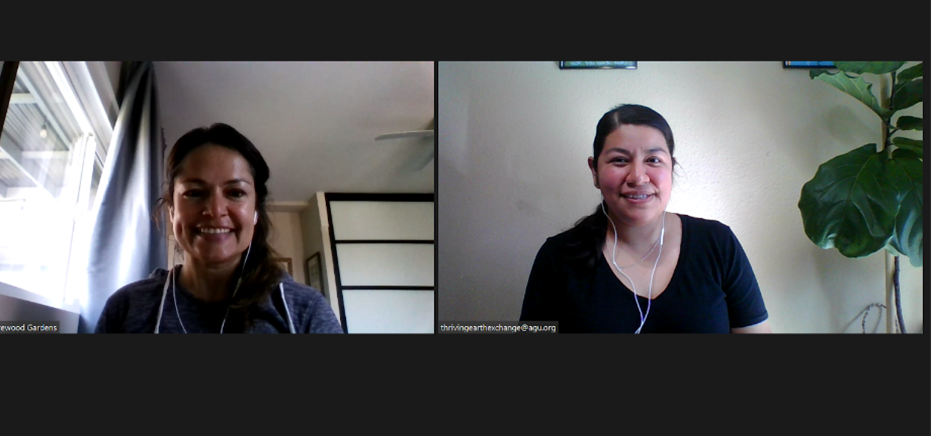
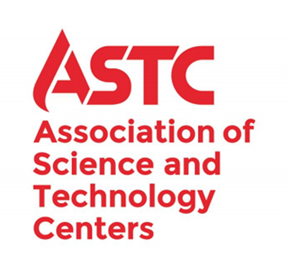 The Association of Science and Technology Centers (ASTC), in partnership with the American Meteorological Society and the American Geophysical Union’s Thriving Earth Exchange, launched a collaboration that connects communities to scientists to advance local priorities. The Thriving Earth Exchange’s work to advance community solutions connects with ASTC’s vision of increased understanding of—and engagement with—science and technology among all people and a mission to champion and support science and technology centers and museums.
The Association of Science and Technology Centers (ASTC), in partnership with the American Meteorological Society and the American Geophysical Union’s Thriving Earth Exchange, launched a collaboration that connects communities to scientists to advance local priorities. The Thriving Earth Exchange’s work to advance community solutions connects with ASTC’s vision of increased understanding of—and engagement with—science and technology among all people and a mission to champion and support science and technology centers and museums.
 The Thriving Earth Exchange Community Science Fellowship brings together scientists, community leaders, and sponsors to work toward solving local challenges related to natural resources, climate change, and natural hazards. ASTC is a member association of science centers and museums all around the country. Community science happens when communities and scientists do science together to advance community priorities. Every community science project begins with a community voice, is guided by community knowledge, and ends in community impact.
The Thriving Earth Exchange Community Science Fellowship brings together scientists, community leaders, and sponsors to work toward solving local challenges related to natural resources, climate change, and natural hazards. ASTC is a member association of science centers and museums all around the country. Community science happens when communities and scientists do science together to advance community priorities. Every community science project begins with a community voice, is guided by community knowledge, and ends in community impact.
Olivewood Gardens has been actively involved in improving the health outcomes of National City residents, a predominantly Latino community. Residents cope with health concerns, including diabetes often attributed to limited access to affordable and healthy food. Through its 7.85-acre gardens where fruits and vegetables are grown, Olivewood Gardens serves as an interactive, indoor-outdoor classroom with programming for children and adults alike.
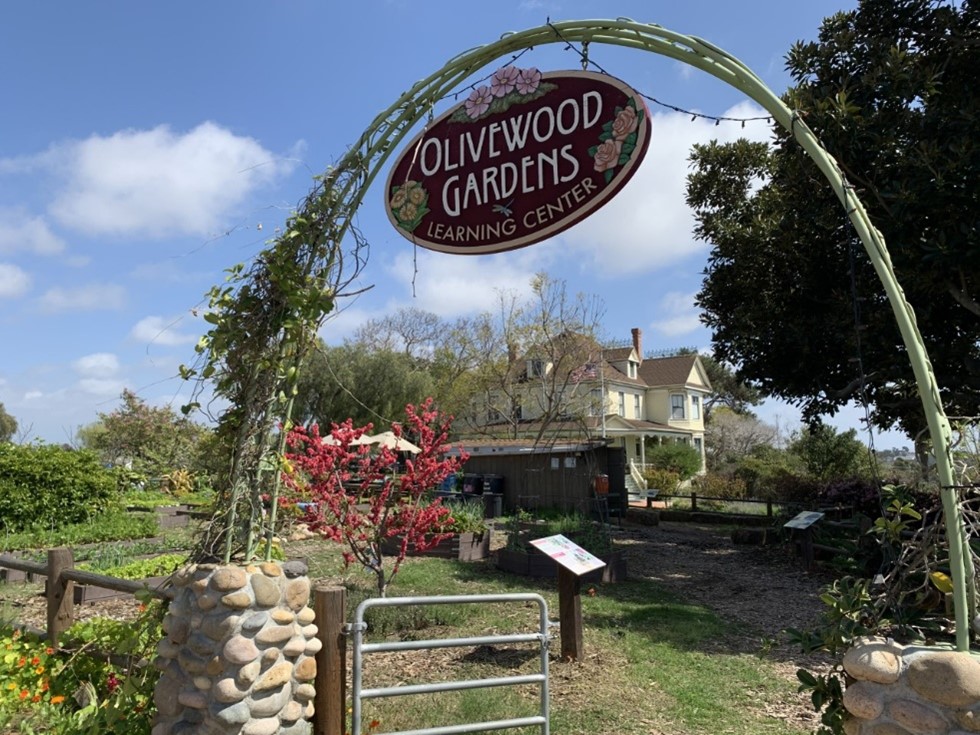
Kitchenistas™ are graduates from the Cooking for Salud™ program at Olivewood Gardens. These graduates continue learning topics such as nutrition and health, leadership development, public speaking, financial literacy, and others through ongoing Olivewood classes and workshops free of cost. They are also involved in other advocacy efforts at their schools, workplaces, and in local government. Kitchenistas in National City are activated community leaders who fulfill a blend of roles as culturally relevant educators, outreach experts, and trusted connectors between the community and resources like those available at Olivewood.
Angelica and Yanet are working together to increase the participation of the National City community in the implementation of California legislation that aims to address overall waste diversion and greenhouse gas emission reduction goals. They plan to work closely with a focus group of Kitchenistas to design a pilot education and outreach program that will create connections between the goals of the new law and culturally relevant hands-on experiences related to organic waste diversion and greenhouse gas emissions. A big component of the pilot program will allow the Kitchenistas to inform the design process as well as receive culturally relevant science communication that demonstrates the intersections between food justice, environmental justice, waste diversion, policy, and other community priorities in National City.
Fleet Science Center and Olivewood Gardens are excited to learn from and work closely with local leaders on this community science project that will center community participation in practical, fun, and relevant ways. Especially exciting is the potential for this pilot program to encourage greater participation through grassroots outreach, culturally relevant science communication, intersectional understanding, and hands-on experiences. The working team plans to share their learnings and promising practices with other cities, demonstrating that participation in environmentally minded science initiatives is not just for affluent communities, it is for everyone. Stay tuned for what they find out!
For more on ASTC’s Community Science Initiative and to learn more about other Thriving Earth Exchange projects visit: https://www.astc.org/communityscience/

